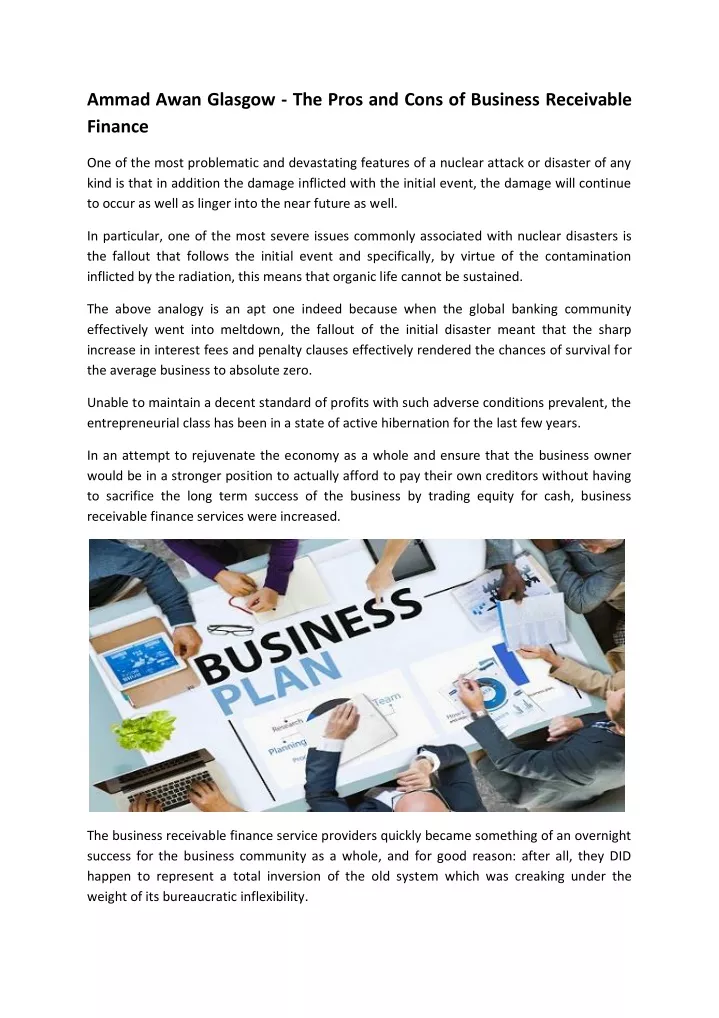The Pros and Cons of healthcare247
Like a college student that's majoring in physical therapy, I have turn out to be far more aware about the assorted healthcare professions. Like a teenager, you've in all probability only noticed a Principal care health practitioner or pediatrician, but this physician might not be ready to fully handle your entire human body's desires. There are many other industry experts who will be Section of the healthcare workforce and who may also help maintain you balanced. Here are some of the several healthcare providers who may help take care of your thoughts and overall body:u0099 Pediatrician: You have probably been observing a pediatrician and can go on to do so until finally you get to the age of eighteen or 21. Pediatricians present a wide range of look after infections, injuries, genetic defects, behavioral issues, developmental Issues, plus more. If essential, pediatricians may refer you to another Health care company or health care expert. Nurse Practitioner: Once your health care provider wasn't available, you almost certainly observed a nurse practitioner. It is a registered nurse (RN) that has an advanced degree and functions really intently with physicians to supply take care of sufferers, but they're not Medical professionals themselves. A nurse practitioner can however prescribe medication and contend with quite a few of one's challenges. Obstetrician/Gynecologist (OB/GYN): It is advisable that girls see an OB/GYN in between the ages of thirteen and fifteen. An obstetrician is a physician who focuses on pregnancy and labor; a gynecologist is a physician who focuses primarily on the female reproductive method. An OB/GYN will help you with detection and treatment of sexually transmitted diseases (STDs), Pap take a look at (most cancers) screening, and relatives scheduling. Nutritionist/Registered Dietician: A nutritionist or registered dietician will let you Be certain that you happen to be having proper. They equally concentrate on the study of diet and might counsel you on foodstuff and eating troubles, which include feeding on Ailments which include anorexia or bulimia. Registered dieticians differ from nutritionists, since they demand a larger education as well as a license. Actual physical Therapist: When you have a Bodily damage or disability, like a sports injury, a Actual physical therapist can help you fortify and regain control of that exact Section of Your entire body. They are doing so throughout the usage of exercise together with other Actual physical treatment plans. Psychologist/Social Worker/Loved ones Therapist/Mental Overall health Counselor: Whether you are getting a tough time using your university, buddies, romance, household, or job, any of these therapists are offered that can assist you kind out your difficulties. Psychologists, social staff and psychological wellbeing counselors concentrate on dealing with people today, although household therapists function with both of those persons and families. A college counselor is a great location to get started on for anyone who is owning a difficulty, as they might enable to find a therapist that is certainly best for you. Psychiatrist: A psychiatrist is often a professional medical health care provider who diagnoses and treats psychological, addictive, and psychological Ailments. In the majority of states, a psychiatrist is the only psychological wellness Expert who will prescribe drugs, such as anti-depressants. When you are observing a psychologist who feels you require medication that will help stabilize your feelings, he may possibly refer you to definitely a psychiatrist. Dermatologist: Will you be acquiring a challenge with acne or one thing uncommon on your skin? A dermatologist can help. Dermatologists also focus on hair and nail care, a indisputable fact that lots of folks are not conscious of. Allergist: You most likely know somebody that is allergic to bees, nuts, pollen, or shellfish. These are definitely several samples of prevalent allergies. Technically, an allergist concentrates on the body's immune response. When anyone has an allergy, their physique experiences an immune reaction to the international matter. Oral/Maxillofacial Surgeon: It can be quite common for teenagers to find out an oral or maxillofacial surgeon for removing of wisdom tooth. But these surgeons could also diagnose and execute surgery to deal with injuries, defects, or illnesses of The top, facial area, and neck. Urologist: You could possibly visit an urologist In case you are going through a concern together with your urinary tract which include urinary tract bacterial infections, that are typical in lady, or bladder Handle, etcetera. An urologist also specializes in the male reproductive organs, similar to how an OB/GYN concentrates on the feminine reproductive organs. Podiatrist: In case you are getting hassle along with your ft or ankles, you may see a podiatrist. They focus on the foot and ankle region, and might address accidents for example sprains, fractures, or bacterial infections. They also address Ailments like bunions, calluses, warts, ingrown toenails, and corns. Pediatric Endocrinologist: Pediatric endocrinologists specialise in hormones, which might be substances produced by glands that have an impact on how specified aspects of Your whole body can function. Hormones have an impact on puberty u2013 how The body grows u2013 and also your pounds, your blood sugar (diabetic issues), and even more. Endocrinologists will help regulate hormones along with the glands that produce and secrete them. This information is simply basic recommendations to the various Health care providers that are available for you. In order for you to obtain the most beneficial remedy, you'll want to check with your Major care medical doctor or pediatrician, who will be able to place you in the correct direction. But most importantly, be sure to get frequent check-ups. The point we call top quality well being care isn't total without the need of patient fulfillment. A superb medical professional can be a Principal factor of individual pleasure. In today's competitive healthcare industry, physicians need to have ongoing reviews from their individuals. This method is named affected person pleasure surveys. This method is a component of Health care on-line status administration. Let's know more details on this. What is the requirement of a client pleasure study? Let's be apparent - pleased prospects tend not to complain. If a doctor should be able to satisfy the affected individual's expectation, then their individuals will far more possible react positively and can carry on with medical professionals' apply. The affected individual may perhaps refer the physicians to family and friends. So, the best way to receive a individual's feed-back is to inquire them. And the best approach to asking every individual is by conducting a suitable survey, which is known as a affected person gratification survey. Exactly what are The explanations to perform patient fulfillment surveys? These days, A lot more Health care sectors are conducting satisfaction surveys. Checking client fulfillment has constantly been An important Component of the healthcare business. Conducting affected person study starts off from asking to listening. There are various reasons why conducting patient satisfaction surveys are necessary. Let's consider Each and every of them. It helps to further improve company: Surveys are usually a great way to know In the event your individuals are searching for any products or services which You do not present. Would be the people happy with the extent of interaction? Are they obtaining very good expert services once they need by get in touch with or in-person stop by? Is your front desk welcoming and handy? Sending an on-line client gratification study just after a visit can provide you precious suggestions from a affected person as it is actually fresh of their minds. Find out more about the patient: On the list of fantastic motives to conduct a satisfaction survey is To find out more about your patients. You will get to really know what is important towards your individuals. Have the staff overview: Your individuals communicate with lots of within your team anytime they visit. If the practical experience just isn't great, to convey the least, then patient satisfaction surveys can easily expose the source of adverse expertise and give you more than enough knowledge from which to act. Patients desire to feel comfortable and welcome throughout the procedure. It really is important to have a superior and supportive workers. The individual is going to be pleased: Conducting surveys and asking them to get involved in a gratification survey tells them their opinion matters. It demonstrates you care the things they Imagine. Connect to the affected person in the future: A very good survey also can support physicians understand how they could join with their individuals Down the road. Every time a patient connects with their health practitioner and feels cared, the affected person will definitely entire the procedure and may choose the doctors in the future at the same time. Get much more individual earnings: Pleased clients will retain returning, and may also refer the provider to relatives and buddies. In case the survey actions that clients fulfill their objectives through the visit, but they would not like to refer to a friend or family member, then adjustments should be built. When the study exhibits that usually, sufferers obtain it's easy to e-book an appointment, but also refers that there's very dissatisfaction Along with the time essentially expended With all the physician, then alterations ought to also be desired. In this manner, the medical professional will decently get extra clients. Healthcare On the internet popularity management performs a big part while in the healthcare sector. Being aware of if the affected individual's satisfaction survey was beneficial or destructive can have a significant impact on the follow of medical professionals. When unfavorable evaluations about Health professionals surface on the web, health-related tactics see a peaceful drop-in check out. But, the standard which many of us try to look for in the healthcare industry might be gained by this survey. Many doctors do not conduct individual satisfaction surveys. They need to have to know the value of Health care on the net reputation administration.
55 views • 3 slides


